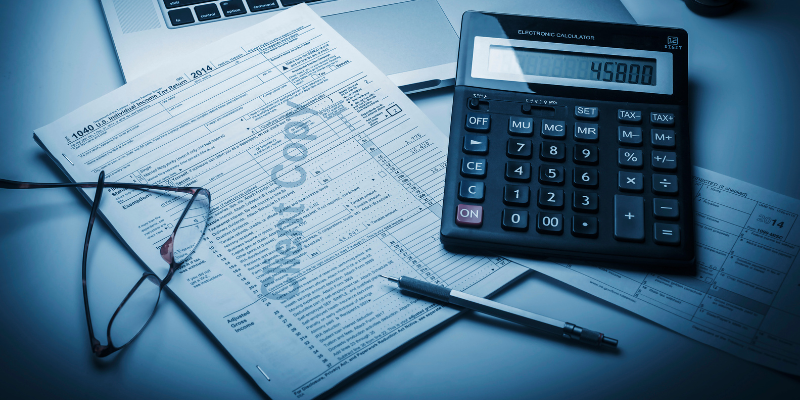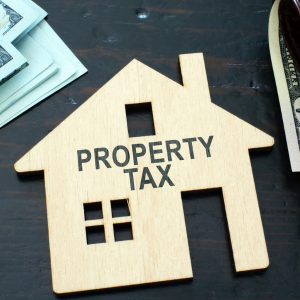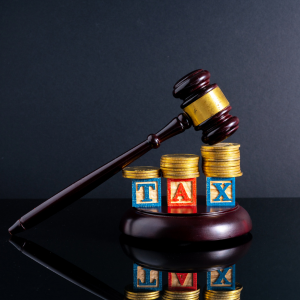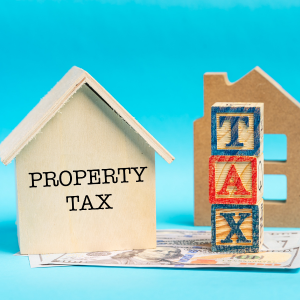
Selling a property with outstanding property taxes in Dallas, TX, can present unique challenges, but it is manageable with the proper guidance. Investor Home Buyers provides the expertise and support to navigate tax-related issues and facilitate a successful sale.
Understanding Property Taxes: An Overview for Homeowners
Homeowners need to know about property taxes, especially if they want to sell a house in Dallas that still owes property taxes. Property taxes are fees that the local government charges people who own real estate. They pay for important public services like schools, roads, and emergency services.
In Dallas, these taxes are based on how much the land is worth, which is decided by the Dallas County Appraisal District once a year. If a homeowner owes property taxes, they need to pay them before or during the sale of their home to avoid problems.
Suppose you plan to sell your home for cash in Dallas or other cities. In that case, it’s essential to be aware that unpaid property taxes can result in a lien on the property, potentially complicating or delaying the closing process. To move forward with selling a home with outstanding taxes, you should request an official tax statement from the county tax office to determine the exact amount owed. Proactively addressing any tax obligations can help facilitate a smoother and more efficient transaction.
This step is very important for both getting rid of bills and being honest with people who might want to buy your house. Understanding this part of owning property makes deals easier and ensures that local rules are followed.
The Impact of Unpaid Property Taxes on Real Estate Transactions
Unpaid property taxes can significantly affect real estate transactions in Dallas, especially when selling a residence. Outstanding property taxes establish a lien on the property, complicating the sale process.
Prospective purchasers and their financiers typically mandate the resolution of any liens prior to closing, necessitating that the seller address any unresolved tax obligations. In certain instances, unpaid taxes may result in foreclosure actions commenced by the local government, thereby complicating or perhaps obstructing a sale.
Moreover, sellers may encounter challenges in finding buyers if liens exist, as potential purchasers typically favor properties with unencumbered titles. Furthermore, outstanding property taxes might influence negotiations; buyers may request price reductions to mitigate the risk and inconvenience associated with tax complications.
Consequently, comprehending and resolving outstanding property taxes is essential for individuals aiming to sell their home in Dallas effectively and without legal entanglements.
Legal Implications of Owing Property Taxes When Selling a Home
If you are selling a house in Dallas that still has property taxes that aren’t paid, you need to know what the legal consequences are. A tax lien can form on a property if the taxes are not paid. This lien is more important than other liens and needs to be taken care of before the sale goes through.
If you live in Texas, this means that the money from the sale of your home will be used to pay off your property taxes first. Not paying these taxes can make the deal more difficult or even stop it in its tracks.
Tax debts must be paid off by the seller before the closing because buyers usually don’t want to take on the duty of past-due taxes. In addition, if the property has been in tax foreclosure because of back taxes, this could make the sale even later or not happen at all.
By making sure all of your property taxes are paid up to date, you not only avoid any possible legal problems, but you also give potential buyers a clear title that doesn’t have any liens on it. Understanding these legal effects helps buyers in Dallas get through the difficult process of selling a house with unpaid property taxes.
Navigating the Property Tax Lien Process in Texas Real Estate

If you want to sell a house in Dallas that still has property taxes that aren’t paid, you need to know how the property tax lien process works in Texas real estate. In Texas, property taxes that aren’t paid automatically put a lien on the land. This can make the sale more difficult or take longer than planned.
To get through this process smoothly, buyers need to take care of these liens before the closing of any real estate deal. To find out the exact amount owed, it’s important to first get a complete list of all the taxes that are still due from the county tax office.
This debt usually has to be paid off at or before closing so that the buyer gets a clear title. If sellers can’t get paid in full right away, they should talk to tax officials about payment plans.
Working closely with an experienced real estate professional and a title company can also make it easier for everyone to talk to each other and make sure that all legal requirements are met. Getting rid of these liens not only speeds up the sale, but it also stops taxing bodies from starting foreclosure processes because the bills are still not being paid.
If you want to sell your home in Dallas’s competitive real estate market while still owing back taxes, you need to know these steps.
How Delinquent Property Taxes Affect Home Sales and Closings
If you want to sell a house in Dallas that still has property taxes that aren’t paid, you need to know how the late taxes can really affect the sale and close. Property taxes that are past due are a financial problem that needs to be fixed before or during the sale.
Tax liens put priority over other claims on the property and could lead to foreclosure if not addressed, so potential buyers are often hesitant to buy homes with them. This can make talks more difficult and make it hard for sellers to get offers that are close to the market value.
Before giving a buyer a mortgage, lenders usually want to see that all of their bills are paid off, including any past-due property taxes. As the seller, you might have to talk with the buyer or pay the taxes yourself, or with the money from the sale.
If you don’t take care of these back taxes ahead of time, the closing could be delayed or even fail completely, because title companies won’t give you clear title insurance until all of your tax debts are paid. Anyone in Dallas who wants to sell a house that owes taxes needs to know about this issue. It will make the process go more smoothly and keep you out of trouble with the law during the home sale.
Strategies for Resolving Unpaid Property Taxes Before Selling a House
If you want to sell a house in Dallas that still has property taxes owed, you need to take care of these bills before going through with the sale. One good idea is to work out a payment plan with the local tax office. This can give you some breathing room while still making sure that payments are made on the amount that is past due.
Also, buyers might think about using the money from the sale of their home to pay off their back taxes at the closing, which would make the process easier for everyone. Talking to a real estate lawyer or tax advisor is another option. They can give you personalized help and possibly find exemptions or relief programs that are only available in Dallas that could lower the total amount you owe.
For people who are having trouble with money, refinancing or getting a short-term loan might also be good choices to pay off past-due property taxes and remove liens from the property title. By taking care of these issues ahead of time, buyers can avoid problems during escrow and make sure that the transfer of ownership goes smoothly when they sell their home.
The Role of Title Companies in Handling Unpaid Property Taxes During Sale

In the event that a house in Dallas is being sold with delinquent property taxes, title companies are essential in ensuring a seamless transaction by addressing any outstanding tax liabilities. Thorough title searches are conducted by these companies to detect any outstanding property taxes or liens on the property.
In this way, they contribute to the prevention of potential legal disputes and the clear transfer of ownership to the customer. During the closing process, title companies collaborate with local tax authorities, sellers, and purchasers to determine the precise amount of back taxes owed and to facilitate their settlement.
Frequently, this entails the retention of a portion of the sale proceeds to settle the outstanding tax debt, thereby safeguarding both parties from potential financial or legal complications. Their expertise guarantees that all essential documentation is accurately completed and recorded, thereby ensuring compliance with Texas real estate laws and regulations and protecting against unforeseen tax burdens that could potentially interfere with the sale.
Financial Consequences of Selling a Home with Unsettled Property Tax Debts
Homeowners in Dallas can lose a lot of money if they try to sell their house while still owing property taxes. If you don’t pay your property taxes, they can put a hold on the property, which can make the sale process more difficult and possibly cause the closing to be pushed back.
People who want to buy a house may be hesitant if it has tax debts on it, so buyers usually have to pay these off before the deal goes through. If the problem isn’t fixed, the local government could start the eviction process, which would make the sale even less likely.
Also, interest and penalties on past-due taxes can add to the total amount owed, which lowers the seller’s net profits from the sale. Homeowners need to take care of these debts right away to avoid legal problems and make sure the transfer of ownership goes smoothly.
Options for Buyers Purchasing Homes with Outstanding Tax Liabilities
In the event of a tax foreclosure, property buyers in Dallas have a multitude of options to consider. Initially, they can come to an agreement with the vendor or seller and work out something where the property taxes are paid prior to the closing.
This strategy usually includes modifying the sale price and or asking the seller to pay the tax debt out of the sales proceeds. Alternatively, buyers assuming the responsibility of unpaid property taxes may have room to negotiate for a lower tax purchase price.
Without a proper understanding of the taxes, payment deadlines, penalties, or other forms of interest, buyers will so carelessly assume they have done sufficient research. Other buyers may consider looking for available options where lenders would agree to consolidate the tax debts with the mortgage repayments; however, this has to be achieved with careful long-term cost-benefit analysis.
Buyers ought to ensure that they engage realtors and attorneys who are well-versed in the Texas and Dallas laws governing real property so that they are able to maneuver these complex deals efficiently.
How to Negotiate with Buyers When Outstanding Property Taxes Exist
When selling a Dallas home with overdue property taxes, skillful negotiating with potential buyers is essential. Buyers may be leery of properties with delinquent taxes, so handle these concerns right away.
Sellers should disclose the amount owed and how it affects the sale price. Offering to pay off some or all of the outstanding property taxes before closing can make the transaction more appealing.
Alternatively, sellers may negotiate a reduced asking price to compensate for the buyer’s duty for taxes. Clear communication about how these financial commitments will be handled is critical for fostering trust and ensuring a smooth transaction process.
Engaging with real estate specialists who have dealt with similar issues before can provide significant insights and methods for good negotiation. Furthermore, understanding local Dallas legislation governing property tax responsibilities during real estate transfers can assist both parties in reaching an equitable agreement.
Common Myths About Selling Homes with Delinquent Property Taxes Dispelled

Many Dallas homeowners assume that selling a house with outstanding property taxes is impossible, but this is a mistake. One widespread misconception is that having outstanding property taxes will prevent you from selling your home at all.
In truth, unpaid property taxes can complicate the sale process, but do not make it impossible. Buyers and sellers can discuss who will pay the outstanding property tax obligation during the closing process.
Another fallacy is that if you have late taxes, you will lose all of your home equity. Even if you owe back taxes, you still have ownership rights and can negotiate settlements with the proceeds of the sale.
Some people believe that buyers will not be interested in properties with delinquent taxes, but many investors and cash buyers actively seek out such possibilities since they know they can negotiate better deals. Furthermore, while tax liens must be handled prior to or during the closing process, a qualified real estate professional or attorney can assist in navigating these challenges effectively.
Understanding that there are options helps to alleviate the concerns about selling a Dallas home with outstanding property taxes.
Step-by-step Guide to Settling Back Taxes Prior to Home Sale Closure
To guarantee a successful transaction, there are some key actions to take when selling a house in Dallas with overdue property taxes. To determine the entire amount owed, begin by closely reviewing your current property tax bill and any outstanding back taxes.
Contacting the Dallas County Tax Office will help you understand your tax responsibilities, as well as any fines or interest that may have accrued. Once you have a clear view of your debt, consider discussing a payment plan with the tax office if immediate full payment is not possible.
Paying down these back taxes is critical since unpaid property taxes can result in liens against your property, hindering or even halting the sale process. Before advertising your home, consult with a real estate attorney or expert who is familiar with local requirements to resolve any potential title issues caused by unpaid taxes.
Ensuring that all back taxes are paid prior to closing not only makes the escrow process go more smoothly, but it also protects both the buyer and the seller from future legal issues relating to unpaid taxes in Dallas County.
Understanding the Risks: Buying Properties with Existing Tax Liens
There are big risks that come with buying a house in Dallas that already has tax liens on it, and anyone who wants to buy that house needs to know about these risks. When a house doesn’t pay its taxes, the local government puts a lien on it, which can make it harder to sell.
People who want to buy a house that has tax liens on it should know that they might have to pay off the back taxes in order to clear the title. It’s possible for this obligation to add extra costs and limit your financing choices, since lenders don’t like giving mortgages on homes that have unpaid liens.
Also, if the former owner doesn’t pay their taxes before the sale, the new owners could face legal challenges or even foreclosure by tax authorities trying to get back unpaid amounts. In Dallas, where real estate markets are tough, it’s important to do your research.
People who want to buy a house should get a thorough title search to find out about any hidden debts. They should also talk to real estate professionals or lawyers who deal with tax liens all the time to get through these tricky situations.
Insights Into the Texas Property Code: Selling Real Estate with Debt Obligations
Navigating the Texas Property Code is essential when selling a residence in Dallas with outstanding property taxes. An understanding of one’s responsibilities can facilitate the process and guarantee adherence to state regulations.
The settlement of property tax liens must occur either prior to or during the closing of a real estate transaction in Texas, as they are given precedence over other forms of liens. If you are selling a home with outstanding property taxes, it is crucial to promptly resolve these debts in order to prevent legal complications that could potentially impede or hinder the sale.
Consultation with an experienced real estate attorney or expert who is well-versed in the specific regulations of Texas can offer valuable advice on how to manage these financial burdens. Ensuring that the transfer of ownership is not impeded by any existing debt, they can assist in the negotiation of payment plans or settlements.
Additionally, understanding the deadlines for tax payments and potential penalties for late payments under Texas law will provide sellers with the requisite insights to effectively manage their obligations as they progress with their real estate transactions in Dallas.
Avoiding Foreclosure Due to Non-payment of Property Taxes in Dallas
Selling a home in Dallas with outstanding property taxes might be difficult, but knowing how to avoid foreclosure due to unpaid taxes is critical. In Dallas, property taxes are a significant obligation for homeowners, and failing to pay them can result in serious penalties, including foreclosure.
To avoid foreclosure due to nonpayment of property taxes, it is critical to handle any outstanding taxes promptly. Homeowners should first call the Dallas County Tax Office to determine the total amount owed and inquire about payment plans or financial aid options.
If you cannot make these payments, selling your house quickly may be a reasonable option; however, it is vital to ensure that all tax liens are cleared as part of the sale process. Working with seasoned real estate experts who understand the complexity of selling a home in these situations might help you avoid potential problems.
Seeking legal advice from property tax and real estate experts in Texas can help prevent foreclosure and successfully manage overdue property taxes during the sales process.
The Role of Escrow Accounts in Managing Unpaid Property Taxes During Sales
When selling a Dallas home with outstanding property taxes, escrow accounts are essential for managing these financial commitments during the sale process. An escrow account serves as a holding space for funds for overdue property taxes until the sale is completed.
This ensures that the property taxes payable are deducted from the proceeds of the transaction before any remaining cash is given to the seller. In Dallas, real estate transactions frequently involve title companies that supervise escrow accounts to ensure that all debts associated with the property, including delinquent taxes, are appropriately addressed.
This agreement protects both buyers and sellers by ensuring there are no outstanding tax bills once the transaction is completed. Escrow accounts provide peace of mind by ensuring that all parties involved meet local legislation and tax requirements.
Sellers can streamline the closing process by handling delinquent property taxes through an escrow account, avoiding potential legal complications or delays caused by outstanding tax arrears.
Expert Tips for Managing and Reducing Unpaid Property Tax Liabilities
When selling a house in Dallas, it is important to pay any outstanding property taxes related to the property. Paying off these liabilities in an efficient manner is important. First, one must understand what is owed by getting a complete statement from the county tax assessor’s office, which will help understand the figure better.
Reach out to the assessing office and consider asking them to set up a payment plan. This would help in stopping further penalties and interest from accumulating. Consult a Texas real estate lawyer or other local tax consultants specializing in Texas properties. They may have useful advice concerning possible exemptions, tax relief programs, and foreclosure avoidance for elderly and disabled owners facing financial issues.
Working with a competent expert helps, as they are knowledgeable of property taxes and how they can impact the sale, especially in negotiating closing costs and expenses with the buyer. An even better option would be reserving some funds from the sale in advance. Doing this helps relieve the burden of owing taxes and appeals to taxpayers who may wish to streamline the sale.
Proper coordination and communication with all stakeholders and buyers guarantees there are no surprises come closing day, which significantly cuts costs and avoids issues.
Managing and reducing unpaid property taxes requires a strategic approach, including reviewing assessments for accuracy, establishing payment arrangements, and exploring available relief programs. For tailored guidance and support, please Contact Us at Investor Home Buyers.
Can You Sell Your House If You Owe Property Taxes?
In Dallas, it can be hard to sell a house that still owes property taxes, but it is possible. If you owe money on your property taxes, you need to take care of them before or during the sale.
Real estate professionals and people who want to buy a house will probably do a title check. This will show them if the house has any outstanding property tax liens. In Dallas, as in many other places, these liens usually need to be paid off before the sale can go through.
You can pay off the property taxes before you put your house on the market, work out a deal with the buyer so that the taxes are covered by the closing costs, or use the money from the sale of your home to pay off these bills. Talking to a real estate lawyer or a person who knows the Dallas property laws is important to make sure you’re following the rules and staying out of trouble with the law.
You can successfully sell your Dallas home without any extra delays or financial surprises if you take the right steps and know what you need to do about unpaid property taxes.
Are you behind on property taxes and seeking a solution? We buy houses in Houston and the surrounding areas. Investor Home Buyers specializes in assisting homeowners facing unpaid property taxes. When you sell your property to us, we will manage any outstanding tax payments.
What Happens If Property Taxes Are Not Paid in Texas?
Not paying property taxes in Texas can get you into a lot of trouble, especially if you’re trying to sell a house in Dallas, where taxes are still owed. If property taxes aren’t paid, the local tax office may put a lien on the property. This can make it harder to sell the house or even stop it from selling at all.
In Dallas and all over Texas, this tax lien gives the government the right to take your property until you pay off the bill. You may have to go through the tax collection process if you don’t take care of these late property taxes right away.
The government can sell your home at an auction for a tax sale to get the money they are owed. Dallas homeowners should know that fines and interest are added to back taxes that aren’t paid, which makes the bill bigger over time.
If you don’t want to lose your house or have problems during the sale, you should take care of any property tax problems as soon as possible by setting up payment plans or talking with the county tax office. Anyone in Dallas who wants to sell a house with back taxes must know about these consequences in order to do so properly and effectively.
At Investor Home Buyers, we make selling simple. Whether you’re looking to sell quickly, avoid expensive repairs, or skip the stress of a traditional sale, we’re here to help. We offer fair cash offers and care for all the details for a smooth, worry-free experience. Call us at (214) 253-4544 for a no-obligation offer. Let’s make your home sale easy.
Helpful Dallas Blog Articles
• Move-out timeline after foreclosure auction in Dallas, TX
• Cost to List Your Dallas, TX, House on MLS
• Sell a House with Owed Property Taxes in Dallas, TX
• Sell a Home with a Quitclaim Deed in Dallas, TX
• Expert Tips For Selling A Water-damaged House In Dallas, TX
• Guide To Filing A Quitclaim Deed For Real Estate In Dallas, TX
• Selling a Fixer-Upper House In Dallas, TX, Without Major Renovations
• Evicting A Tenant When Selling Your House In Dallas, TX
• Capital Gains Tax After Selling a House in Dallas, TX
• For Sale by Owner Buyers Agent Commission in Dallas, TX
• Can You Sell a House with Tenants in Dallas, TX?
• Can I Sell My House in Dallas, TX, If I Am in Forbearance?
• Average Cost to Sell a House in Dallas, TX

| LEVY | TAXPAYERS | LEVIES | DEED OF CONVEYANCE | JUDGMENT | CITY OF DALLAS |
| DALLAS, TEXAS | DALLAS TEXAS | TAX DEED SALE | TAX SALES | LIENHOLDER | FORECLOSED |
| FORECLOSING | FORECLOSURE SALE | FORECLOSE | AUCTION PROCESS | SUIT | COUNTY CLERK |
| INVESTMENT | INVESTING | EXPENSES | EXPENDITURE | DEFERRALS | RESALE |
| MORTGAGE LENDERS | BIDDER | REFINANCE | REALTOR | LEGAL OWNERSHIP | FLOOD |
| PUBLIC AUCTION | DESCRIPTION | ATTORNEY’S FEES | NEWSPAPER | MONEY | |
| HOMESTEAD EXEMPTIONS | CREDITORS | VETERANS | PREMIUM | CREDIT SCORE | CREDIT |
| TEXAS COUNTIES | TAX COLLECTOR | RESEARCH | TO THE HIGHEST BIDDER | PROPERTY TAXES IN TEXAS |
